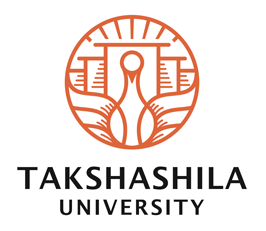The blog discusses the differences between a regular B.Tech and one with specialisation. A B.Tech provides broad fundamentals across domains, while a specialised one focuses on one field. Read till the end of the blog to know more details and which is a better option.
BTech Vs BTech With Specialisation
Before diving into the debate, BTech VS BTech with specialisation, let’s understand what they are.

BTech
B.Tech is a 4-year undergraduate program in engineering that provides broad exposure to core subjects across different engineering domains like mechanical, civil, electrical, etc. The focus is on providing fundamental knowledge.
BTech With Specialisation
A B.Tech with specialisation is also a 4-year program, but it allows students to focus more on one particular engineering domain from the second year onwards. For example, B.Tech in Computer Science with a specialisation in Artificial Intelligence.
In a B.Tech with specialisation, about 60-70% of the course curriculum in the last 2-3 years will be focused on the chosen specialisation area. This allows students to gain deeper domain knowledge.
Overall,
A B.Tech degree provides broader and more multi-disciplinary learning, while a specialised B.Tech provides an advantage for those wanting in-depth knowledge in a particular area of interest.
Additional Tips : Read the blog on “What Is The Difference: BE Vs BTech” by Takshashila University Experts
Know The Differences: BTech Vs BTech With Specialisation
The key difference is that B.Tech provides broad fundamentals across engineering domains, while B.Tech with specialisation allows students to gain more profound expertise in their chosen discipline of specialisation. The experienced faculties of Takshashila University lists the differences below.
| Parameter | BTech | BTech with specialisation |
| Focus of Curriculum | Broad exposure across different engineering domains through core subjects | 60-70% of the curriculum in the last 2-3 years focused on the chosen specialisation area |
| Depth Vs Breadth | Provides breadth of knowledge across domains | Allows greater depth of knowledge in one particular domain |
| Career Opportunities | Flexible options across different industries | Focused roles relevant to the specialisation field like AI/ML, etc. |
| Coursework Design | General in nature, evenly spread across domains | Tailored towards specialisation areas through electives, projects, etc. |
| College Intake | No restrictions, more flexibility | Limited seats for different specialisations based on infrastructure |
| Depth Vs Versatility | Provides multi-disciplinary learning | Advantage for those wanting depth in one particular area of interest |
Pros Of Pursuing B.Tech
Here are the pros and cons of pursuing a B.Tech:
Advantages of Pursuing a B.Tech
- Provides a strong foundation in core engineering concepts and skills.
- Develops logical thinking, analytical abilities and technical aptitude.
- Wide career opportunities in diverse sectors like manufacturing, IT, consulting, etc.
- Potential for higher studies like M.Tech, MBA, etc., to advance a career.
- Job prospects are good, especially in core engineering companies.
- Salaries typically increase steadily with experience.
Benefits Of Choosing B.Tech With Specialisation
Here are the key benefits of choosing B.Tech with specialisation over a regular B.Tech:
- Focused Expertise: It allows students to gain deep domain knowledge and expertise in their area of specialisation like AI/ML, Data Science, IoT, etc., rather than just basic exposure.
- Tailored Curriculum: The coursework is designed specifically for the specialisation with dedicated courses, projects, internships, etc. This enhances practical learning.
- Better Industry Exposure: The curriculum and projects are more aligned with the industry needs of the specialisation field, providing better connections and understanding.
- Improved Career Prospects: Easier transition to specialised job roles, startups or higher education in the chosen domain. Also improves chances of placements.
- Higher Salary Potential: Core skills and expertise in high-demand areas like AI command a premium. Specialisation graduates can negotiate better packages.
- Competitive Advantage: Graduates stand out from general B.Techs with demonstrable proficiency in their specialised domain of study.
- Updated Knowledge: Covers the latest developments and trends in the dynamic field of specialisation.
- Future-proof Career: Specialising in emerging areas like AI/Data Science prepares one for new-age career opportunities.
Additional Tips : Read the blog on “Which Is Better, BCA Or BTech?” by Takshashila University Experts
Know The Specialisation Options Available In B.Tech
Here are some of the most common specialisation options available in B.Tech programs:
- Computer Science – Specialisations include Artificial Intelligence, Machine Learning, Data Science, Cyber Security, Software Engineering, etc.
- Electronics & Communication – Specialisations include Embedded Systems, VLSI Design, Signal Processing, Communication Networks, etc.
- Electrical Engineering – Specialisations include Power Systems, Power Electronics, Control Systems, Instrumentation etc.
- Mechanical Engineering – Specialisations include Thermal Engineering, Machine Design, Automobile Engineering, Production Engineering, etc.
- Civil Engineering – Specialisations include Structural Engineering, Construction Engineering, Environmental Engineering, Transportation Engineering etc.
- Chemical Engineering – Specialisations include Process Engineering, Polymer Technology, Petrochemicals, Petroleum Refining etc.
- Biotechnology Engineering – Specialisations include Genetic Engineering, Bioprocess Technology, Pharmaceutical Biotechnology etc.
- Agriculture Engineering – Specialisations include Food Technology, Soil and Water Conservation, Energy Engineering, etc.
- Textile Engineering – Specialisations include Fiber Science, Apparel Manufacturing, Knitwear Design etc.
- Aeronautical Engineering – Specialisations include Aircraft Design, Aerodynamics, Aircraft Maintenance etc.
The specialisation options vary across colleges, and emerging areas like Artificial Intelligence, Cloud Computing, Internet of Things are also being increasingly offered.
Job Opportunities And Career Prospects For B.Tech Graduates With Specialisation
Here are the job opportunities and career prospects for B.Tech graduates with specialisation:
- Core Engineering Roles: Can get roles in core functions like R&D, design, production, etc., in specialised domains.
- IT/Software Companies: There is a high demand for specialists in areas like AI, ML, data science, cloud, and IoT from tech giants.
- Product Companies: Opportunities to build new products/solutions around their specialisation area.
- Startups: Can be co-founders or core technical members in startups focused on their specialisation.
- Consulting: Firms hire specialists for advisory work related to clients from relevant industries.
- Banking/Finance: Roles in areas like data analytics, risk management, and fintech with specialisation.
- Public Sector: Government undertakings hire for specialised functions like defence, railways etc.
- Higher Education: Pathways to masters/PhD programs at premier institutes to pursue research.
- Teaching: Can join engineering colleges as faculty with a specialisation background.
- Entrepreneurship: Well-equipped to start their own specialised tech/engineering ventures.
- Managers/Leaders: Prospects to head department projects or become industry experts.
With domain expertise and skills, specialised B.Tech graduates have a big advantage in core job roles, higher roles and specialised functions across sectors.
How Do You Choose The Right Specialisation In B.Tech?
Here are some factors to consider when choosing the right specialisation in B.Tech:
- Your interests and strengths: Choose an area that truly interests and motivates you, where you have an aptitude and strength. This will make the learning easier.
- Career aspirations: Research emerging job roles and opportunities in different domains to align your specialisation with your long-term career goals.
- Market demand: Check industry reports and trends on high growth and demand sectors to maximise job prospects.
B.Tech Vs B.Tech With Specialisation: Which Is The Right Choice?
Whether B.Tech or B.Tech with specialisation is the right choice depends on the individual’s goals and preferences:
B.Tech is a better option if
- You want to keep career options flexible across domains after graduation.
- You are still exploring different interests and want broad exposure before specialising.
- You may want to switch specialisations, which is easier with a generic B.Tech degree.
- The college you choose does not offer the specialisation of your interest.
B.Tech with specialisation is preferable if
- You have a clear interest and career vision in a specialised field like AI/ML.
- You want to develop deep expertise to qualify for core roles in that domain.
- The college has good infrastructure and faculty for your preferred specialisation.
- You are willing to focus all efforts on one area and don’t mind limiting flexibility.
- Specialised skills can help in better job opportunities and salaries in the long run.
Choose Takshashila University For A Successful Career
Takshashila University offers many in-demand specialisations like AI, Data Science, Cyber Security, Cloud Computing, etc. It has strong industry partnerships and offers cutting-edge curriculum and hands-on learning in specialised labs.
Eminent faculty with global academic exposure provide quality education and research guidance. By choosing specialised programs at Takshashila, one can gain deep expertise, industry exposure and global networking to start a successful tech career in emerging domains.
Enrol in any B.Tech programmes today!
Conclusion
Both B.Tech and B.Tech with specialisation have their own merits and suit different goals. A B.Tech provides broad exposure across engineering domains, keeping career options flexible. This is suitable for those still exploring interests or wanting versatility.
On the other hand, a specialised B.Tech equips students with in-depth skills in high-demand areas like AI/ML. It opens doors to specialised roles, startups and higher studies. This fits individuals with a clear long-term vision and passion for their field of specialisation.
Choosing the right program, BTech Vs BTech with specialisation depends on matching one’s strengths, aspirations and the program structure to available opportunities. Both can lead to rewarding careers. What matters most is identifying the right fit based on one’s priorities, interests and goals to maximise learning and career outcomes.
With the right choice, specialisation or a general B.Tech, engineering graduates are well prepared for new-age opportunities.
Frequently Asked Questions (FAQs)
1. What is the difference between BTech and BTech with specialisation?
BTech provides broad exposure across domains, while BTech with specialisation allows focus on one field from 2nd year onward. The specialisation offers greater depth in one area over four years.
2. What are the top specialisations available in BTech?
Top specialisations in BTech include AI/ML, Data Science, Cyber Security, IoT, Robotics, Automotive, Cloud Computing, etc. Emerging areas like Blockchain are also gaining popularity.
3. What are the job opportunities after doing BTech with specialisation?
Job opportunities exist in core engineering roles, IT companies, startups, banking, teaching, etc. Specialisation opens doors to specialised functions and higher roles with expertise in the domain.
4. How do you choose the right specialisation in BTech?
Consider your interests, strengths, career goals and market demand when choosing a specialisation. Align it to your aptitude and emerging opportunities.
5. What are the factors to consider when choosing BTech vs BTech with specialisation?
Consider goals, interests, college infrastructure, willingness to focus and flexibility when deciding between general vs specialised BTech. Both can lead to good careers.






